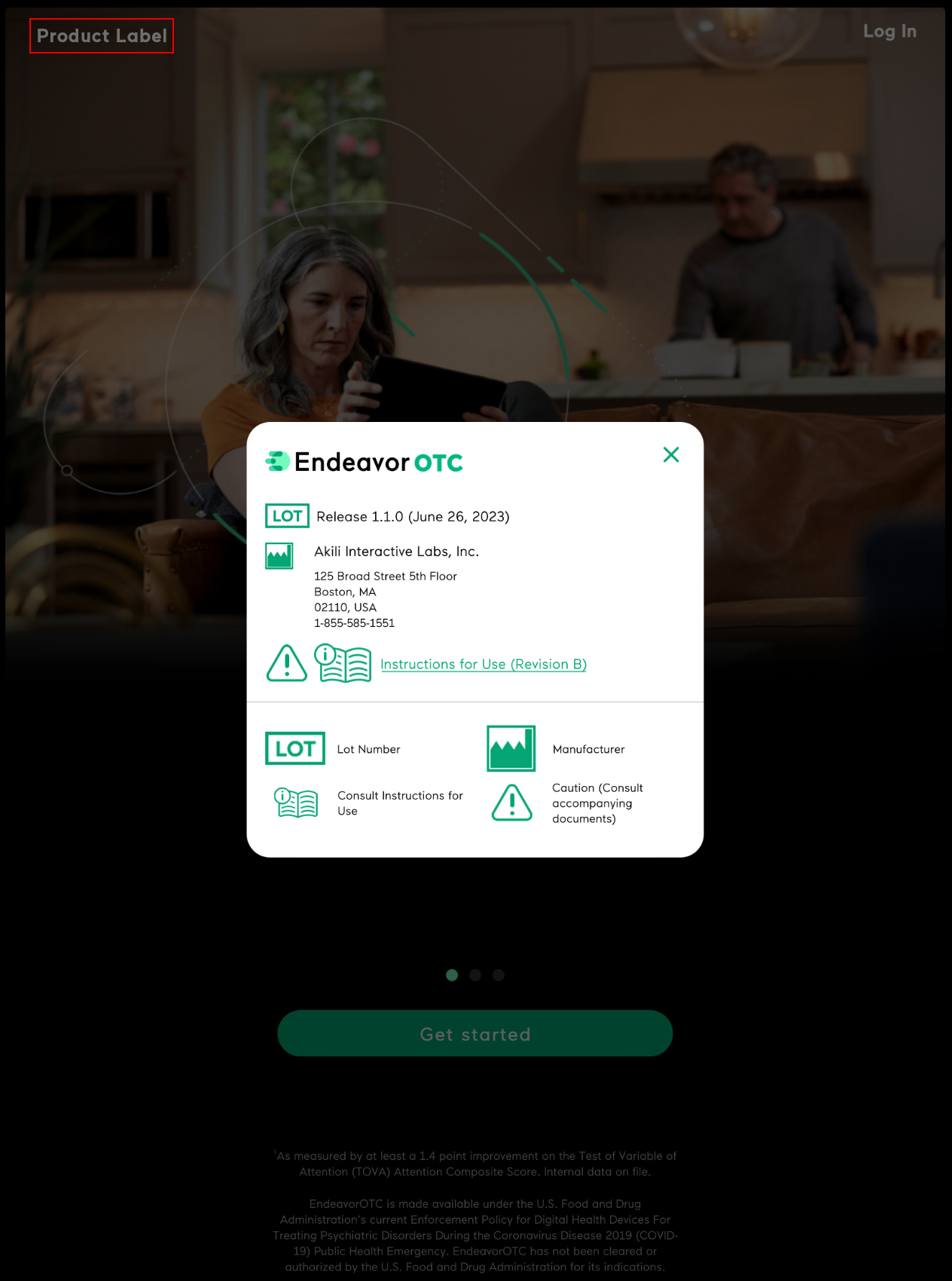Managing Your ADHD and Emotional Regulation: Questions to Ground & Guide You

For many, living with ADHD means navigating life with intense emotions, and without proper management techniques, it’s easy to feel overwhelmed or dysregulated.
Frequent shifts from enthusiasm to frustration or motivation to despair can be a lot to take in. However, by asking yourself the right questions, you can anchor your emotions amidst the chaos. Here’s a guide to help you manage emotional sensitivity with ADHD, using introspective questions and evidence-based techniques from cognitive-behavioral therapy (CBT) as your compass.*
*These strategies are not a substitute for mental healthcare. Talk to your provider about any difficulties you may be experiencing.
Finding Motivation and Purpose
Are you feeling stuck? ADHD can sometimes mean a lack of motivation for important or necessary activities. When motivation wanes and you feel like you’re trudging through mud, it’s essential to reconnect with your purpose. Ask yourself:
- How is increasing my motivation going to improve my life? Think back to a time when you achieved something significant. Remember the sense of accomplishment and how it propelled you forward in other areas of your life? Can you recall the ripple effect it had on your confidence and the subsequent tasks you undertook?
- What are the long-term benefits of pushing through this moment? Consider a challenge you once faced; maybe it was a project or a personal goal. Wasn’t the knowledge and resilience gained from that experience invaluable in subsequent endeavors? How did overcoming that challenge shape your approach to future obstacles?
- How will achieving this task align with my broader goals? Reflect on your overarching aspirations. Can you see how the current task, no matter how daunting, is a stepping stone towards that larger vision? How does this piece fit into the grand puzzle of your ambitions?
- What activates that ADHD superpower of hyperfocus? Think about what helps you get in flow. When did you last feel like you were in a flow state – where you were totally present and engaged in the activity or task at hand? How can you channel that energy to help push forward now?
In moments of doubt, these reflections and connections to past experiences can provide the clarity needed for better motivation with ADHD.
When motivation wanes and you feel like you’re trudging through mud, it’s essential to reconnect with your purpose.
Challenging Perfectionism That Doesn’t Serve You
Does perfectionism get in your way? Oftentimes, ADHD and perfectionism can go hand-in-hand, sometimes leading to unnecessary anxiety and self-doubt. When navigating this, it’s essential to question and challenge these thought patterns in a constructive way.
- Am I being black-and-white in my thinking? Recall a time when you faced a similar situation. How did viewing things in absolutes help or hinder your progress? Were there nuances that, upon reflection, changed the perspective?
- What’s the middle ground between perfection and failure? Think about past projects or tasks. What were some instances where, even if things didn’t turn out perfect, they still resulted in positive outcomes or learning experiences? How did those situations benefit you in the long run?
- Are there aspects of this situation that I’m overlooking because they don’t fit my need for things to be perfect? Consider moments when you might have been too focused on making a single aspect perfect and missed other valuable insights. How did broadening your view or seeking feedback provide a more balanced understanding?
By posing these reflective questions, you can deconstruct your perfectionism and possibly reduce your anxiety over the need to be perfect. Approaching these situations with a fresh perspective will allow you to view them in a more balanced light. Remember: challenging unhelpful negative thoughts doesn’t mean putting on rose colored glasses—it just means finding a more realistic perspective.
Remember: Challenging unhelpful negative thoughts doesn’t mean putting on rose colored glasses—it just means finding a more realistic perspective.
Seeking External Perspectives
Need a fresh viewpoint? Gaining distance from a situation and attempting to view it through a different lens can often show you paths you might have overlooked. When faced with a dilemma, it’s beneficial to seek external perspectives. Some questions you can ask yourself to try to put yourself in the shoes of a third-party observer include:
- What would a good coach say about this situation? Think back to a time when you witnessed someone receiving constructive feedback. How often was it wrapped in encouragement and a broader perspective that highlighted strengths and growth areas? How did that feedback change the course of action for the individual?
- If a close friend were in my shoes, what advice would I offer them? Reflect on moments when you’ve counseled friends or family through challenges. What were some times when you gave a friend advice you needed to hear yourself? How did that advice resonate with both your friend and your own experiences?
- How would someone I admire handle this situation? Consider the qualities and approaches of those you look up to. What were some instances where their calm, strategic, or innovative approaches to challenges inspired you? How might mimicking those strategies change your current perspective?
By stepping outside yourself and seeking these external viewpoints, you can often find reassurance and innovative solutions to the challenges at hand.
Balancing Control and Acceptance of your Emotions
Are you feeling powerless? The weight of situations beyond our grasp can be daunting. Yet, understanding the relationship between what is controllable and what isn’t can be empowering amid chaos. With ADHD, it’s easy to feel overwhelmed by your emotions so it helps to think about which aspects of a situation are in your control (and work on problem-solving), versus which are out of your control (and work on acceptance).
- Have I done what I can to control the situation? Think about past challenges. What were some times when, after taking all possible actions, you realized some outcomes were simply beyond your influence? How did accepting this fact change your approach or emotional response?
- Have I been intentional about my reaction to the situation? Oftentimes, very little is in our control outside of our reaction. Think about how intentional you’ve been in guiding your reaction in the past. What has helped you stay in control of your own reaction in the past?
- What elements of this situation are beyond my control? Recall instances when external factors, like others’ decisions or unforeseen events, played a significant role. How did recognizing these uncontrollable elements help in resetting your expectations or strategies?
- How can I adapt or adjust to the things I can’t change? Consider moments when adaptation was the key to moving forward. Weren’t there scenarios where a change in perspective or approach turned a seemingly insurmountable obstacle into a manageable or even beneficial situation?
By distinguishing between what’s within our control and what isn’t, we can focus our energy more productively and better manage strong emotions in ADHD.
Taking the Long-Term Perspective with your Emotions
Do you get lost in the moment? The immediacy of a situation can often cloud judgment and amplify emotions. You can reduce some of the emotional sensitivity that comes with ADHD by shifting the lens to a more extended horizon.
- How will I feel about this a year from now? Remember past challenges that once seemed insurmountable. What were some instances when, with time, those very challenges faded or even became valuable learning experiences? How did time change your perception of those events?
- How much will this matter in the grand scheme of things? Consider past decisions or events that seemed pivotal at the moment. What were some times when, upon reflection, you realized that they were just a small piece of a much larger puzzle? How did this realization influence your subsequent decisions or emotional responses?
- What lessons can I learn from this experience that will benefit me in the future? Think about moments of growth and learning. Weren’t many of these moments born out of challenges or mistakes? How did these experiences shape your future actions or perspectives?
By adopting a long-term perspective, you can deal with “now situations” with balanced emotions and foresight. Today’s challenges then become tomorrow’s stepping stones.
Allowing Self Compassion & Kindness
Are you being hard on yourself? For those with ADHD, negative self-talk can be much easier to come by than self compassion and kindness. It’s essential to remember that kindness starts from within.
- Would I speak to a loved one the way I’m speaking to myself right now? Recall a time when someone close to you was going through a challenging phase. How did you comfort and support them? What words of encouragement did you offer? Now, imagine if those words were directed at you. How would that change your current feelings?
- What would a voice of kindness and understanding say at this moment? Think about moments when you’ve felt understood and supported. What words or gestures made a difference? If those sentiments were echoed back to you now, how might they alter your perspective?
- How can I show myself the same compassion I’d offer to someone else? Reflect on instances when you’ve been compassionate towards others. What actions or words did you use to convey your empathy? How can you redirect that same compassion towards yourself, especially during challenging times?
- Are you rewarding yourself for past successes? I’m sure you’ve had many successes along the way that you’ve breezed right over. If that’s the case, really take a look at some of these and be sure to, at a minimum, give yourself a pat on the back. It’s easy to overlook these, but they deserve your attention!
Embracing self-compassion is not about ignoring flaws or mistakes but recognizing that everyone, including yourself, deserves understanding and kindness.
Seeking Balance
Are you feeling off-kilter? In the whirlwind of daily life, especially with ADHD, it’s easy to lose sight of the bigger picture and get caught up in specific emotions or situations.
- Am I giving too much weight to one aspect of the situation? Think back to a time when a particular event or emotion consumed your thoughts. Did focusing solely on that one aspect provide clarity, or did it cloud your judgment? How might broadening your perspective have changed your reaction or decision?
- How can I bring more balance to my thoughts and feelings? Reflect on moments when you felt overwhelmed by a rush of emotions. Were there other underlying feelings or factors that you might have overlooked? How could acknowledging and addressing those have brought more balance to your emotional state?
- What activities or practices help me find my center? Remember when a specific activity, like a walk in the park, meditation, or hobby, helped you regain your equilibrium. How did that activity make you feel? How can integrating such practices into your routine help maintain a balanced mind?
Finding balance is about managing emotions and addressing the factors that influence them. Regularly asking yourself these guiding questions allows you to navigate daily life more easily. Every question is an opportunity to understand yourself better and make choices that align with your well-being.
